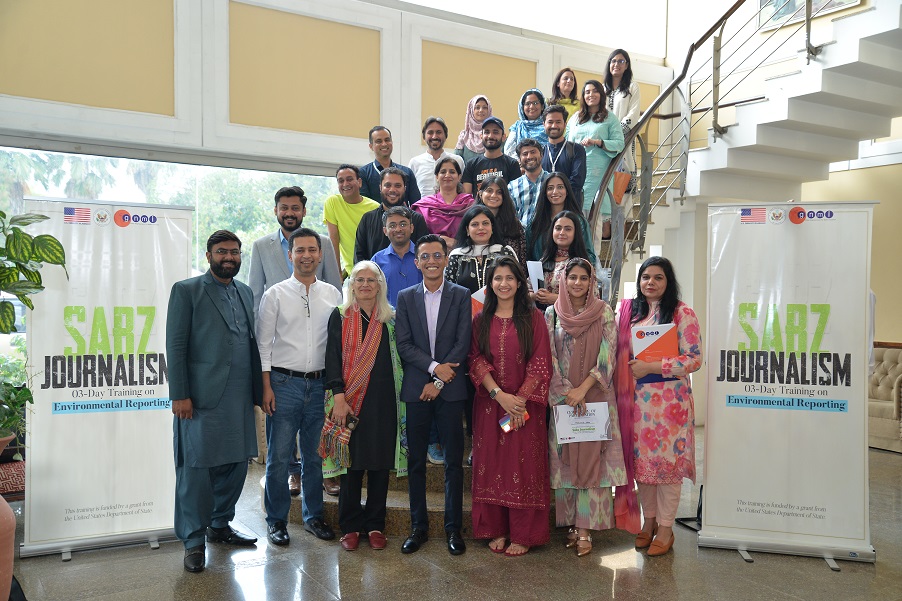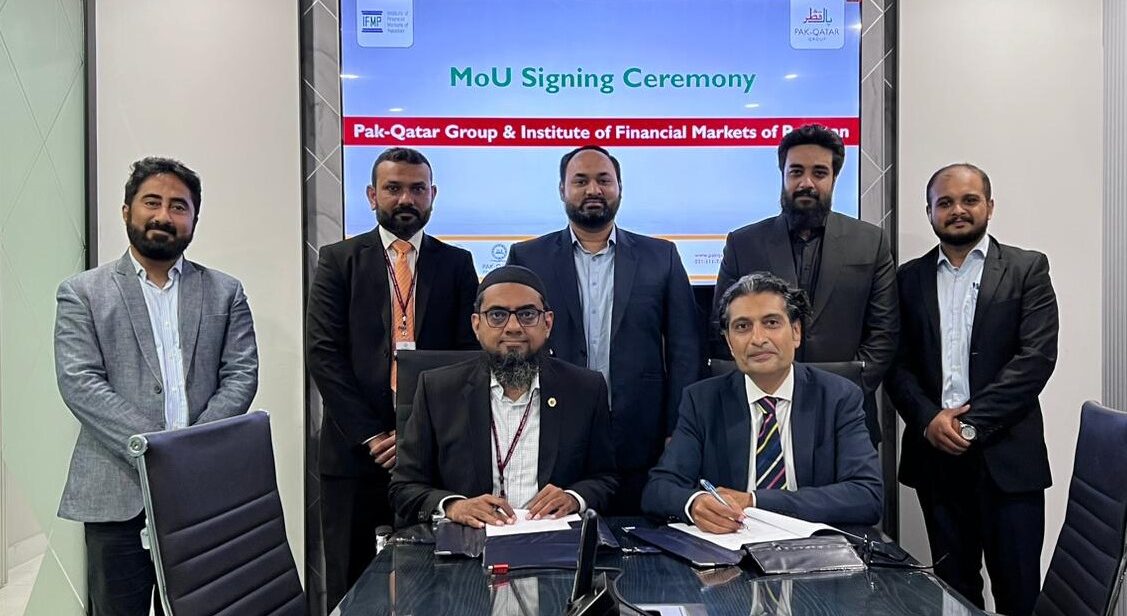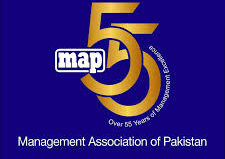Islamabad : In the shadows of Islamabad’s skyline, an invisible battle for environmental equilibrium rages on. Behind the urban facade, a complex tapestry of environmental challenges echoing the urgent call for action in the face of climate change and ecological degradation. From the leafy avenues of Islamabad to the sprawling landscapes beyond, journalists’ words echo with the urgency of a ecological protection and the promise of a sustainable future. Media representatives in Islamabad Capital Territory (ICT) are united to protect the natural habitat and environmental preservation.
The Global Neighbourhood for Media Innovation (GNMI), in collaboration with the United States Department of State, organized a 3-Day Sabz Journalism Environmental Journalism training in Islamabad. Led by senior environmental journalist Afia Salam, the training aimed to empower mid-level journalists, digital content producers, and filmmakers actively engaged in climate- related reporting across various media platforms.
“Environmental journalism plays a crucial role in raising awareness and shaping public opinion on pressing environmental issues”, said Husnain Raza, Director of GNMI. “Through this training, we aim to equip reporters and content producers with the knowledge and skills needed to increase the volume of climate reporting in Pakistan”.
The comprehensive program covered topics such as understanding the science of the environment, distinguishing between climate and environment, data-driven and investigative story production, digital storytelling techniques, and strategies for content dissemination. Hands-on learning activities were integrated to enhance participants' production skills, with a focus on incorporating environmental perspectives into their routine reporting.
The training included sessions led by renowned experts in the field, such as Talha Ahad, CEO and founder of the leading digital news network The Centrum Media (TCM), and Badar Khushnood, co-founder of Bramerz and Fishry, prominent digital startups in Pakistan. Sabz Journalism fellows had the valuable opportunity to learn from their extensive experience and expertise, gaining insights into digital news startups and marketing techniques aimed at establishing or strengthening their digital news platforms for environmental reporting.
Dr. Bashir Ahmad, Director CEWRI at the Pakistan Agricultural Research Council (PARC), Zeeshan Mangi, Deputy Chief of the SDGs Section at the Ministry of Planning and Development Islamabad, and senior broadcast journalists Tanzeela Mazhar and Absa Komal also spoke at the training session.
The rapidly growing urban population of Islamabad is exacerbating the effects of climate change, the city is slowly converting into concrete jungle” remarked local journalists from the capital city.”As the metropolitan area expands, deforestation of Margala hills and increased construction contribute to higher emissions and reduced green spaces,” commented another participant.
Fellows belonging to the reputable media houses of Islamabad including, Associate Press Pakistan (APP), Pakistan Television (PTV), Dawn News, Hum News, Independent Urdu, 92 News as well as various print and digital media outlets, participated in the event.
Sabz Journalism Fellowship Program aims to empower journalists with the necessary skills and knowledge to report effectively on environmental issues, promoting awareness and understanding among the public. The program also seeks to promote data-driven and investigative reporting, achieve inclusive economic growth and sustainable development by producing and disseminating climate-focused content on digital media platforms.





































































































































